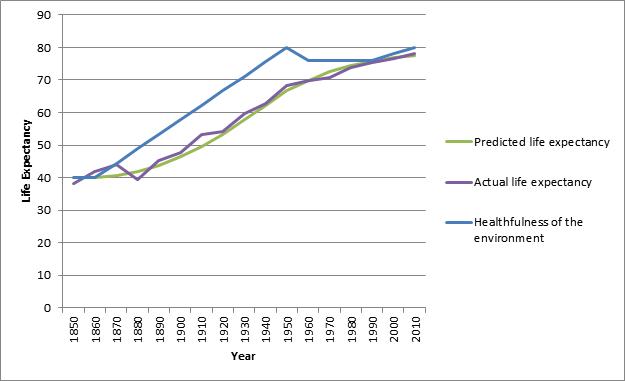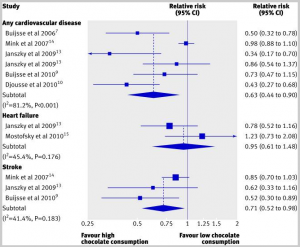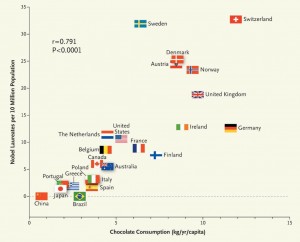I’ve just touched a finished copy of our new book for the first time: it is gorgeous! This picture is a poor substitute, but here’s a view of the cover.
[1] Cute animals:
Via Yves Smith.
[2] Semi-cute animal: K-pop is so hot, even the Oregon Duck can’t stop dancing Gangnam style:
[3] Interesting Items:
Peter Dobromylskyj of Hyperlipid has been looking at how different dietary fatty acids help or hinder mitochondrial control of cellular metabolism. He has two intriguing posts today:
– In the first, he proposes that saturated fats make long fasts more tolerable by enabling better control of energy utilization; polyunsaturated fats make long fasts intolerable and trigger hypoglycemia, stimulating appetite. This would be the second known pathway by which omega-6 fats upregulate appetite: omega-6 fats can also degrade to endocannibinoids which stimulate eating.
– In the second, he suggests that an omega-6 rich ketogenic diet would promote diabetes by creating conditions of cellular energy excess. Saturated fats protect against that scenario. Perhaps Peter and CarbSane can agree: There is such a thing as “nutty ketosis”!
Meanwhile, Jimmy Moore is doing well on nutritional ketosis, but Neely Quinn of Paleo Plan had trouble.
CarbSane finds another zero-carb danger: thiamin deficiency neuropathy.
Mark’s Daily Apple has a 204-page forum thread on the “Potato Diet.” Tatertot asked me what I thought of a potato-only diet as a weight loss tactic, and I gave my thoughts here. I might add: Safe starches have come a long way, if the hot new Paleo/Primal weight loss fad is 100% safe starch!
Dr Weil is behind the times; he thinks Paleo doesn’t include starches.
Kaleigh Laventure, The Paleo Angel, talks to Abel James about the trouble she had on Leangains. It seems like the junk-food binging part of the protocol was a big problem.
Hey, what does Stephan Guyenet have against bacon egg doughnut burgers?
If you want a starch-free breakfast, Laura at This Felicitous Life has a recipe: banana and egg pancakes. She writes:
Well, we’re starting our fifth week here of the Perfect Health Diet. Pat is down about 8 pounds and has noted that he now has to wear a belt to keep his pants from sliding down. He’s been overheard marveling, “I can’t believe I’m losing weight by eating steak and nuts and cheese and butter!” So far I’ve refrained from socking him in the schnozz.
I’m stuck at starting weight – 1lb.
Figures.
Razib Khan subscribes to a rather unusual version of Paleo.
Sean at PragueStepChild has good parenting advice.
Ray Medina looks at foods that can affect sleep.
Stefani Ruper has a manual for overcoming PCOS. Sol Orwell offers supplement advice at Examine.com.
Prof Dr Andro reports that frying creates peroxides and destroys vitamin E; and that the more fat toddlers eat at age 2, the less fat is around their waist at age 20.
Is fish oil a toxin whose benefits come through hormesis?
Chris Kresser reports another reason we’re undernourished: we eat foods long after harvest.
David Despain has plenty to say about the diet of lemurs.
[4] Not the Weekly Video: Primal Chef has a cookoff between Sarah Fragoso of Everyday Paleo and Cindy Anschutz of Cindy’s Table:
[5] Reader Results: Our last roundup of reader results was two months ago, and a number of reports have rolled in since.
Conor says:
First of all – thank you. I started on the PHD a couple of years ago after buying one of the earliest copies of your book (you were kind enough to ship it to New Zealand). I’ve found it extremely successful, with a couple of nagging issues (rosacea for example) resolving totally. I also noticed greatly increased energy.
Evan had the high LDL on Paleo problem and after following our suggestions – safe starches and mineral supplements – says, “WOW, Feeling great in just 3 weeks.”
Laura has also had good results.
Jonathan cured his restless leg syndrome:
Hi Paul, just wanted to let you know that after approximately 2 months on PHD and taking the recommended supplements, my restless leg syndrome has completely disappeared. I was a bit hesitant at first to believe it could be true, but it’s been a few weeks now so I can say it’s officially gone. This is something I remember having since I was a young child, maybe 6 or 7 so it’s pretty neat to resolve the issue through diet.
An email:
Incredible book! The most fascinating book I’ve ever read. It has helped me cure all my health issues and I can’t thank you enough for writing this book. I pass it on to everyone I meet. This book can definitely put chronic diseases in the past.
Johnny reports PHD is working well for weight loss:
Hi Paul,
At 235lb I started a low carb diet and went to 198 but my loss stalled.
I changed to the Perfect Health Diet: Weight Loss Version, consuming at least 600 daily calories combined protein and carbs, with overall calories of 1,200-1,500 per day.
My weight loss restarted, although at about 1 lb. per week, and I’m now at 188.
Mike C had a similar experience:
Hey Paul, Just want to thank you for taking the time to research and write a book that makes sense in every aspect. I am a 44 year old male who started this journey at 405lbs with LC/Atkins but after losing the inital water weight I then proceeded to lose and gain the same 3 pounds over and over again during the next 4 months. I was strict, ate no more than 20 net carbs per day and felt ok, but no weight loss….
Eating by PHD rules, the weight has begun to come off again!! I don’t count anything, but always ensure to eat by the guidelines you suggest and I find I eat less calories and feel full longer naturally and the “IF” that I really did not want to do as part of the plan has come naturally and not eating till noon from the night before is really no problem. I have dropped weight and a few pants sizes since started this plan and more importantly I am really enjoying my food again. Adding 300 to 400 calories in potatoes or rice each day has really opened up the dishes I can make again. I feel better, less hungry and more satisfied eating PHD and real food. French fires made in grass fed tallow are my new health food and we have them 3 or 4 times a week! I wanted a way I could eat for life and I found it. Thanks again and I look forward to the new version of the book!
FYI: I would guestimate I eat around 2300 calories a day. I am losing 2 pounds per week and am down to 372lbs.
Paloma reports that intermittent fasting cured her insomnia:
Thanks for this post! I have been doing this for a week now and it works!
I was desperate because I wasn’t able to get asleep… I have two small kids so imagine how tired I was! But I was doing it all wrong. Now I skip breakfast, have an early lunch, some merienda at 17 h and dinner at 20:30. Then a cold bath at 22h and get asleep in 5 minutes! Thanks!
Linda Wyatt has eliminated her migraines:
I started a ketogenic diet for other reasons, but the first and most obvious change was that my migraines stopped. I had no idea this would be a possible benefit, but now, it is my primary motivation for staying on the diet. I have no interest whatsoever in going back to frequent, debilitating, migraines.
Allison is recovering from hypothyroidism:
Hi Paul,
You may remember I commented about a month or so ago that I’d started following PHD after a year of struggling with debilitating hypothyroidism (despite supplementation with compounded thyroid and cytomel), along with low testosterone, low DHEA, underfunctioning adrenals, and a vitamin D deficiency. Less than two months ago, I was unable to drive, and was having trouble walking due to the fatigue and trouble with muscle coordination.
The results of my most recent blood work are in, and there are great improvements: my vitamin D levels have returned to optimal levels, my DHEA is normal, my testosterone has increased (although its not at a normal level yet), and my free T3 has increased to 3.1. Before, it was so low it wasn’t even on the chart and only my total t3 could be reported (which, obviously, was mostly reverse t3). My adrenals have yet to show any improvement.
I still have a way to go, but what a huge improvement! Most days, I feel pretty good. I’ll keep at it.
Dave Baird was one of those who had a brief weight gain before losing weight on PHD:
When I first started following the Perfect Health Diet I gained 1.5 kilos – this has since been lost again and I’m consistently losing about a kilo per week.
Jack Cameron improved his cardiovascular health:
After reading “Perfect Health Diet” I increased my intake of saturated fats and reduced intake of grains and legumes. After a few months on the improved diet I had an echocardiogram and a VAP test. The echo showed that my ejection fraction had increased from 65 two years earlier to 75 which is about as good as it gets. The VAP test showed by TG dropped from 66 to 60 and HDL increased from 80 to 88. Apo B dropped from 98 to 90. Blood pressure is now 110 over 60.
Ana Cheeseman noticed something odd – a new eye color:
I have been following your diet for the past months and I have been feeling amazing!!! My acne has cleared up, my periods are normal, I have lost weight, everything’s been great!! What I have noticed however is a change in my eye colour. My eyes used to be dark brown but now they are hazel.
Cindy Rosenberg left a nice comment on Facebook:
this way of eating is changing my body and my life, and that of many of my patients. thank you so much for your wisdom and guidance. so so grateful
Nora is also happy:
I love PHD. It makes me feel great, I am always satisfied at the end of a meal. I don’t have to eat as much anymore because I don’t have cravings.
Finally, a case of recovery from tortilla poisoning:
Thank you so much for writing the Perfect Health Diet book!
I have lost 20 pounds in six months by simply reducing the amount of tortillas I was eating. I used to eat up to 15 tortillas a day. Now I eat about five for the whole week. Like you guys said; the dose is the poison!
[6] Shou-Ching’s Photo Art:
[7] Video of the week: The Hubble Ultra Deep Field in 3D:
via Jennifer Fulwiler.
















Recent Comments